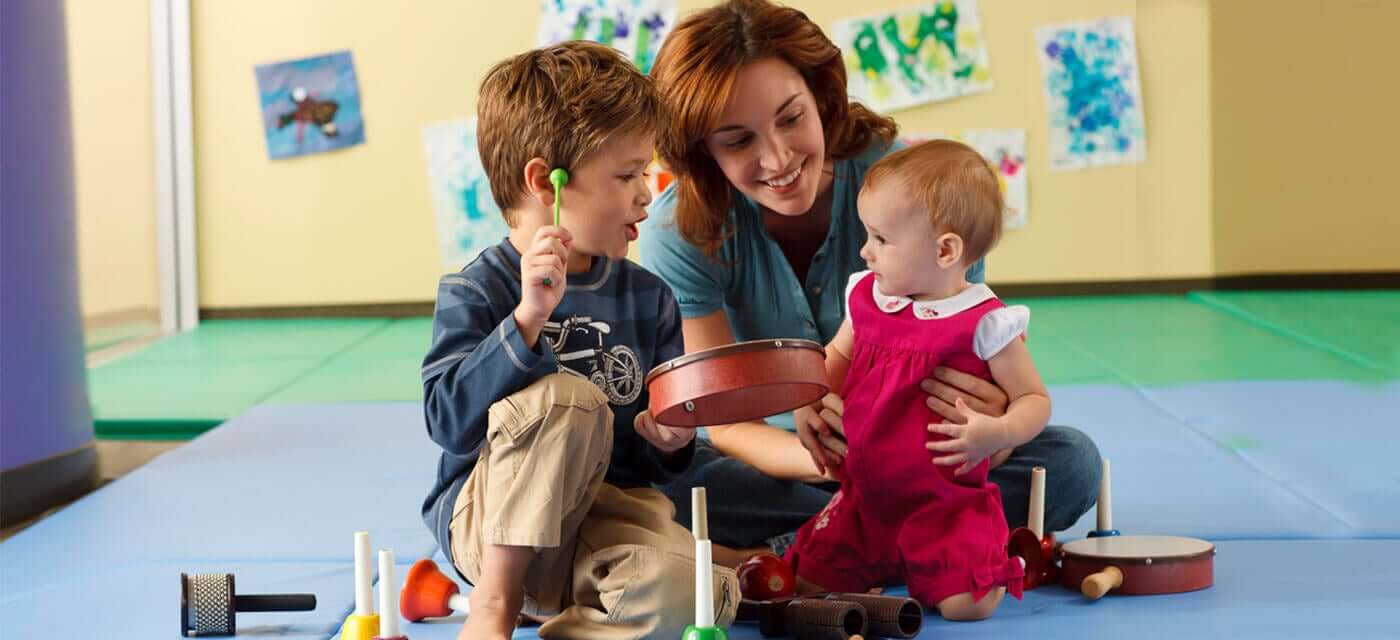Why Is Social Interaction Important in Young Children?


Written and verified by the psychologist María Alejandra Castro Arbeláez
As a parent, you’ll soon learn that developing a sense of identity and belonging is essential for your young child’s transition from being a newborn to becoming an independent and self-confident adult. For children to develop their identity and personality, social interaction becomes essential.
Social interaction and identity
As adults, you probably wonder how you got to be the person you are today. Why do you think, feel, and react the way you do? Identity helps children understand who they are and understand the place to which they belong in this world that’s so large and complicated. In addition, it helps them to strengthen their personalities.
Identity is an essential and integral trait of people. But sometimes, the complex process of its formation is taken for granted. It certainly doesn’t happen overnight, people’s identities keep evolving and developing as life progresses. We could say that it begins when you’re a baby and continues throughout life.
Having an identity means understanding that a person is unique, understanding that we’re all different and that we belong to different places. Children’s social interactions will help them get to know themselves and have a strong sense of identity. The role they play at home, the roles they play when they’re with family or friends, everything is important.
The importance of the child’s first relationships

A child’s first relationships are generally with their parents, but as children grow, relationships begin to change. It’s normal for parents and children to have conflicts. But this isn’t bad, because if they‘re managed well, they result in interactions that will help children get to know each other better.
They’ll discover their own competencies, their independence, and their preferences.
Parenting has a significant impact on the identity of parents as they move from being a single couple to being parents of dependent beings. They even notice how their identities change when their children are babies, toddlers, school children, teenagers, or when they become parents of adults.
Social interaction with friends
In your children’s social interaction with their friends, children learn to initiate and maintain relationships. They learn the rules of negotiation and compromise, how to resolve conflicts, understand and accept people who are different from them, etc. Friendships are also another source of security and support, complementary to the one they receive from their parents.
Young children are sensitive observers of other people. The truth is, they’re continually making connections between the way they see how others behave and their feelings or states of mind. At the same time, these observations help them understand their own feelings and mental states, and in this way, they build their sense of identity.

Sometimes adults make the mistake of thinking that a person’s identity is an individual trait, but identity formation can only be built in a social context. Being close to other people, we’re able to understand ourselves, and in the same way, children need to interact with others.
Therefore, it’s a good idea, as a parent and adult, to ask yourself the question of how you’ve come to be who you are by looking back. And, looking forward, wondering who you’re becoming… Are you doing well down that path?
Ask in turn, who is your child becoming? Think about the relationships they have with friends and family to answer this question.
As a parent, you’ll soon learn that developing a sense of identity and belonging is essential for your young child’s transition from being a newborn to becoming an independent and self-confident adult. For children to develop their identity and personality, social interaction becomes essential.
Social interaction and identity
As adults, you probably wonder how you got to be the person you are today. Why do you think, feel, and react the way you do? Identity helps children understand who they are and understand the place to which they belong in this world that’s so large and complicated. In addition, it helps them to strengthen their personalities.
Identity is an essential and integral trait of people. But sometimes, the complex process of its formation is taken for granted. It certainly doesn’t happen overnight, people’s identities keep evolving and developing as life progresses. We could say that it begins when you’re a baby and continues throughout life.
Having an identity means understanding that a person is unique, understanding that we’re all different and that we belong to different places. Children’s social interactions will help them get to know themselves and have a strong sense of identity. The role they play at home, the roles they play when they’re with family or friends, everything is important.
The importance of the child’s first relationships

A child’s first relationships are generally with their parents, but as children grow, relationships begin to change. It’s normal for parents and children to have conflicts. But this isn’t bad, because if they‘re managed well, they result in interactions that will help children get to know each other better.
They’ll discover their own competencies, their independence, and their preferences.
Parenting has a significant impact on the identity of parents as they move from being a single couple to being parents of dependent beings. They even notice how their identities change when their children are babies, toddlers, school children, teenagers, or when they become parents of adults.
Social interaction with friends
In your children’s social interaction with their friends, children learn to initiate and maintain relationships. They learn the rules of negotiation and compromise, how to resolve conflicts, understand and accept people who are different from them, etc. Friendships are also another source of security and support, complementary to the one they receive from their parents.
Young children are sensitive observers of other people. The truth is, they’re continually making connections between the way they see how others behave and their feelings or states of mind. At the same time, these observations help them understand their own feelings and mental states, and in this way, they build their sense of identity.

Sometimes adults make the mistake of thinking that a person’s identity is an individual trait, but identity formation can only be built in a social context. Being close to other people, we’re able to understand ourselves, and in the same way, children need to interact with others.
Therefore, it’s a good idea, as a parent and adult, to ask yourself the question of how you’ve come to be who you are by looking back. And, looking forward, wondering who you’re becoming… Are you doing well down that path?
Ask in turn, who is your child becoming? Think about the relationships they have with friends and family to answer this question.
All cited sources were thoroughly reviewed by our team to ensure their quality, reliability, currency, and validity. The bibliography of this article was considered reliable and of academic or scientific accuracy.
- Adrián, J. E., Clemente, R. A., & Villanueva, L. (2006). Atribución emocional dependiente de creencias falsas: relaciones con la interacción social entre iguales y lenguaje de los niños. Infancia y aprendizaje, 29(2), 191-201. https://www.tandfonline.com/doi/abs/10.1174/021037006776789890
- Arroyo, M. (2009). El papel de los adultos en el desarrollo del niño. Revista Digital Transversalidad educativa, 27, 15-21.
- Bowlby, J., & Mirales, A. G. (2014). Vínculos afectivos: formación, desarrollo y pérdida: Edición renovada. Ediciones Morata.
- Campo Ternera, L. A. (2014). El desarrollo del autoconcepto en niños y niñas y su relación con la interacción social en la infancia. Psicogente, 17(31), 67-79. http://revistas.unisimon.edu.co/index.php/psicogente/article/view/1470
- Martínez, M. D. C. P., Justicia, F. J., & Cabezas, M. F. (2009). Prácticas de crianza y competencia social en niños de 3 a 5 años. Pensamiento psicológico, 6(13), 37-48. https://dialnet.unirioja.es/servlet/articulo?codigo=3265411
- Quiroga, F., Capella, C., Sepúlveda, G., Conca, B., & Miranda, J. (2021). Identidad personal en niños y adolescentes: estudio cualitativo. Revista Latinoamericana de Ciencias Sociales, Niñez y Juventud, 19(2), 1-26. http://158.69.118.180/rlcsnj/index.php/Revista-Latinoamericana/article/view/4448/1089
- Valencia, L. I. (2012). El contexto familiar: un factor determinante en el desarrollo social de los niños y las niñas. Poiésis, 12(23). https://revistas.ucatolicaluisamigo.edu.co/index.php/poiesis/article/view/332
This text is provided for informational purposes only and does not replace consultation with a professional. If in doubt, consult your specialist.








